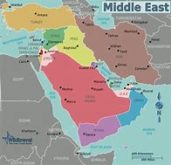VOA – At least 118 cross-border porters were killed or injured in November, the Hengaw Organization for Human Rights reported this week, adding that more than 93% of them resulted from shootings by the armed forces of Iran.
Hengaw said Thursday that eight porters were killed, one of them a child, and 110 were injured, 14 of them children.
The porters, called kolbars, carry everyday goods by donkey or other means across the mountainous border from Iraq to Iran. Iran considers some of the goods to be contraband.
Analysis of the statistics from preceding months showed a significant surge in casualties, with November seeing a 293% increase compared with October 2023, when 30 kolbars were killed or injured.
Kurdistan province accounted for the majority of the increase, 93 cases, followed by Kermanshah province with 22 cases and West Azerbaijan province with three instances.
Reports indicated an escalation in direct shootings targeting kolbars over the past year, a trend substantiated by the rising casualty statistics.
Human rights activists argue that contrary to the claims of Iranian authorities, most kolbars do not transport prohibited items.
“There is no specific reason for them to shoot. For instance, my father never transported alcohol or similar items, so they cannot claim they shot him because he was smuggling such goods,” a daughter of a kolbar killed by the Iranian military told VOA.
Leila Morovati, a political analyst and collaborator with Mokrian News Agency, previously told VOA that she believed there was no intention of addressing the cross-border trade and those involved in it.
Kolbari, the term for the practice of transporting goods across the border in exchange for money, “reflects political, social and economic inequalities present in Kurdish regions and throughout the entire country,” she said.
The prevalence of kolbari among children, adolescents and young people, as well as women and girls in Kurdish areas, can be attributed to the “unequal distribution of wealth and opportunities,” particularly “after the revolution,” she said.
 Shabtabnews In this dark night, I have lost my way – Arise from a corner, oh you the star of guidance.
Shabtabnews In this dark night, I have lost my way – Arise from a corner, oh you the star of guidance.



